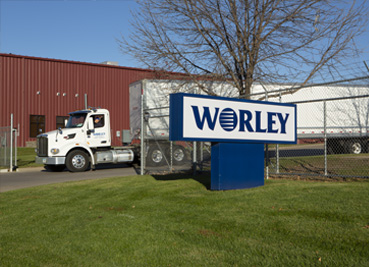
Finally, the mid-term elections have come and gone. With a little luck, things will settle down, and something can be accomplished in Congress, particularly on the issues that affect our supply chain. During the campaigning we heard a multitude of promises from numerous candidates; and now is the time to see which promises will be kept, if any. Most of all, we need to see some action, not the internal in-fighting we have witnessed so far.
One of the major supply chain concerns continues to be the crumbling infrastructure. In spite of the passage of the Infrastructure Investment and Jobs Act earlier this year, little has been accomplished, at least not for the overall good. In spite of President Biden’s biases, we must rid ourselves of the notion that this should be all about jobs.
Our actions should focus on roads and bridges and a broad network of highways that will allow for the smooth movement of goods, while at the same time considering national defense. We continue to squander funds on so called “shovel ready” projects that have done little, if anything, to boost the efficiency of interstate commerce. We must develop a firm plan for improving our infrastructure, and along with the states, provide the resources to accomplish it. The jobs will follow.
We need to look no further than the interstate system conceived in 1956, for a model. This system, mandated by the federal government, provided not only for efficient transportation, but thousands of construction and roadside business jobs. But this 60+ year old system is aged and tired. It needs help.
I believe transportation and service pricing will continue to be problematic this year. A lot depends on where the economy goes from here; but we should be concerned about reaching the point at which the cost of providing the kind of service that consumers demand becomes so high that they are no longer willing to pick up the tab. Hours of service restrictions, uneven governmental regulation, capacity constraints, fuel costs, and infrastructure
issues all are contributing to higher transportation costs, and I believe will continue to do so. The E-Commerce people have it right. If you want your order overnight, you pay a premium price. If you do not care when it arrives, you pay less.
We learned a lot about human resource utilization during the pandemic. Working from home (WFH) became an efficient solution to keeping the wheels of business turning. WFH was much more productive than most expected, and in fact has continued in many cases, even though it is not as necessary as it once was. Many firms have adopted systems where part of the week is spent at home, and part at the office. Some job seekers will not consider positions that do not allow some WFH during the week.
Consider the weather crisis we just experienced. According to the New York Times, About two thirds of the U.S. population was under a weather watch or advisory last Friday. 1.4 million homes and businesses were without power. For WFH employees, it was business as usual. For thousands of others, getting to work was impossible. Most firms would benefit from the adoption of some form of hybrid program to prevent shut downs during unforeseen events.
Finally, we need to be concerned about inflation. While the rate is down from the 7.7% last July, we still are running higher than desirable. This will continue to affect all pricing – including transportation.
There will be other uncertainties with which the supply chain manager must cope, but history has shown us that most will be up to the challenge.